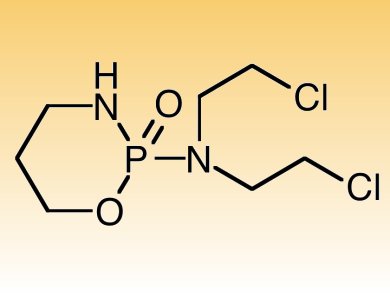The chemotherapeutic drug cyclophosphamide (pictured) is commonly used to treat tumors and other pathologies such as autoimmune diseases. Nevertheless, it causes infertility when administered to young women.
Lital Kalich-Philosoph, Chaim Sheba Medical Center, Tel Aviv, Israel, and colleagues report a way around this problem. The scientists discovered that cyclophosphamide induces the premature growth of primordial follicles, ovarian structures that regulate the production of mature eggs. In doing so, cyclophosphamide depletes the ovaries from cells which can be fertilized. According to the researchers, however, this effect can be prevented by ammonium trichloro(dioxoethylene-o,o’), an immune drug known as AS101. This compound may, thus, be able to preserve the fertility of young women undergoing treatments with cyclophosphamide or other chemotherapeutic drugs.
- Cyclophosphamide Triggers Follicle Activation and “Burnout”; AS101 Prevents Follicle Loss and Preserves Fertility,
L. Kalich-Philosoph, H. Roness, A. Carmely, M. Fishel-Bartal, H. Ligumsky, S. Paglin, I. Wolf, H. Kanety, B. Sredni, D. Meirow,
Sci. Transl. Med. 2013, 5(185), 185ra62.
DOI: 10.1126/scitranslmed.3005402




